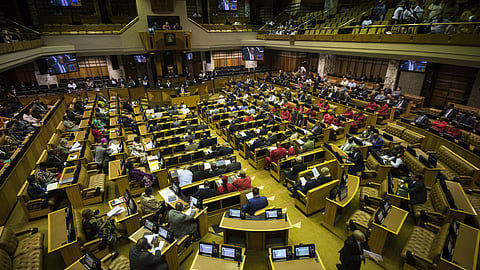Leadership
SA’s Budget crisis proves the ANC needs its coalition partners
South Africa's budget delay highlights growing tensions in the coalition government.
Key topics:
- Ramaphosa's disregard for coalition partners strains South Africa's unity government.
- Budget delay sparks concerns over South Africa's fiscal stability and debt crisis.
- ANC must cooperate with DA to avoid further instability and maintain coalition.
Sign up for your early morning brew of the BizNews Insider to keep you up to speed with the content that matters. The newsletter will land in your inbox at 5:30am weekdays. Register here.
Support South Africa's bastion of independent journalism, offering balanced insights on investments, business, and the political economy, by joining BizNews Premium. Register here.
If you prefer WhatsApp for updates, sign up to the BizNews channel here.
By Justice Malala
___STEADY_PAYWALL___

